Topical Questions beginspublished at 14:05 GMT 23 February 2016
SNP MSP Christina McKelvie asks the Scottish government what its position is on the announcement of a referendum on membership of the EU on 23 June 2016.
FOR LIVE TEXT COVERAGE PLEASE SCROLL DOWN
Deputy First Minister John Swinney gave evidence to the Devolution Committee on the fiscal framework negotiations
The first minister gave a statement on the fiscal framework negotiations and returned to announce a deal had finally been struck
The Devolution Committee gathered again to hear from Scottish Secretary David Mundell on the fiscal framework deal
Colin Bell and Craig Hutchison
SNP MSP Christina McKelvie asks the Scottish government what its position is on the announcement of a referendum on membership of the EU on 23 June 2016.
Moderator of the General Assembly of the Church of Scotland Right Rev Dr Angus Morrison delivers today's time for reflection.
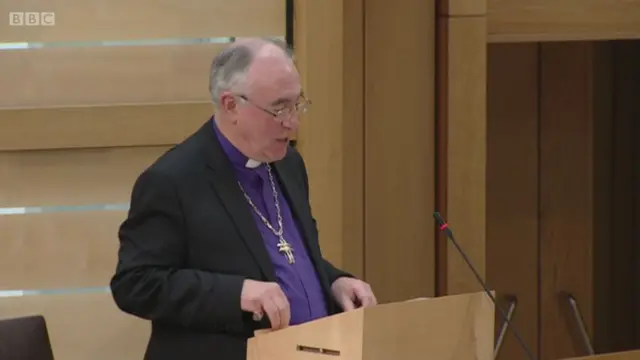
It will be an extremely busy afternoon and evening at Holyrood.
MSPs will ask about the EU referendum and reports that GP funding has been reduced during topical questions.
Then the first minister will give a statement on the fiscal framework negotiations.
The Justice Committee will lead a debate on Scotland’s National Action Plan on Human Rights.
The Scottish government will lead a debate on the BBC Charter Renewal Process.

The finance secretary has hinted only Nicola Sturgeon and David Cameron can now reach a deal
Following that, the Land and Building Transaction Tax (Amendment) (Scotland) Bill will be debated for the first time.
Decision time will be at the later than usual time of 6pm, or may be even later! We'll keep you updated.
Dennis Robertson will then lead a debate highlighting Eating Disorder Awareness Week 2016, external.
Due to the extraordinary Devolution Committee evidence session with Scottish Secretary David Mundell, we will have to leave the member's debate at 6.40pm.
If you wish to watch the whole of the member's debate on Eating Disorder Awareness Week 2016, can we point you in the direction of the Scottish Parliament's chamber coverage, external.
Committee convener Stewart Maxwell draws the evidence session with the education secretary to a close.
Labour MSP Mark Griffin asks if the education secretary would not prefer to see the schools budget protected.
Ms Constance counters asking should the government ringfence other aspects of education.
Ms Constance says she does not agree with local government's position on this and that everyone has to do the best with the financial constraints that they have.
Labour MSP Mark Griffin asks if the cabinet secretary for education has pressed the finance secretary for more funding.
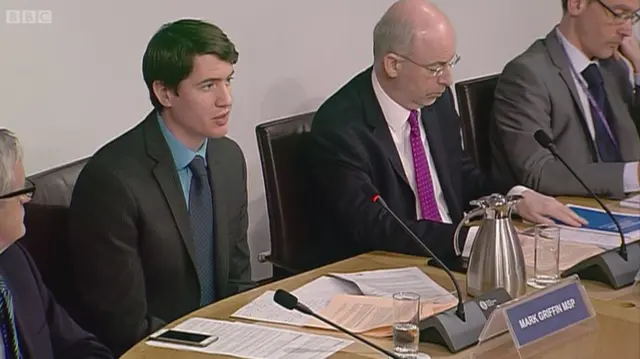
Labour MSP Mark Griffin
"I'm probably the bane of the finance secretary's life", she says.
Labour MSP Mark Griffin says local government feel the Scottish government are making it more difficult to cut the attainment gap.
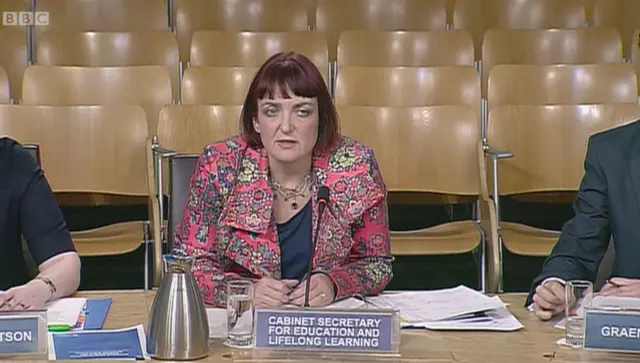
Ms Constance says local authorities are still to set their budgets.
The cabinet secretary for education says the reality is attainment has increased and the gap has closed despite the difficult financial climate.
The Labour MSP asks if Scottish Labour's fair start fund would close the attainment gap quicker than the Scotish government's Attainment Scotland Fund.
Under the Labour scheme head teachers would be given £1,000 for every pupil from a deprived background and the discretion over how to spend it.
Ms Constance says Labour have not said how they would fund this if they were ever in a position to do so.
The education secretary says there is evidence the attainment gap is closing.
"There is a body of evidence that we are on the right road."
Mr Pentland says is this not unfair on schools not targeted by the Attainment Challenge or the fund.
Ms Constance insists the government has funded attainment officers for every local authority.
Labour MSP John Pentland says 1500 schools get no support from the Attainment Scotland Fund.
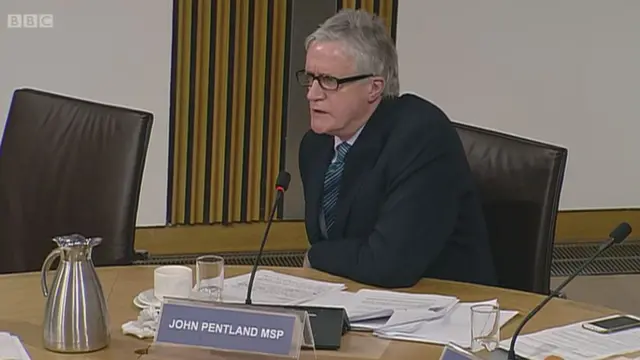
Ms Constance says the Attainment Challenge's first step was to target 7 local authorities with more than half of Scotland's poorest children.
The education secretary says the next phase is the more specific schools part of the Attainment Challenge, focussing on schools with 70% of children in SIMD deciles one and two.
It now covers 21 local authorities, she says.
Ms Constance says the government wants to close the gap between those least and most disadvantaged, "setting a high bar".
Lib Dem MSP Liam McArthur says there are many attainment gaps and the government has not accepted the existance of multiple gaps.
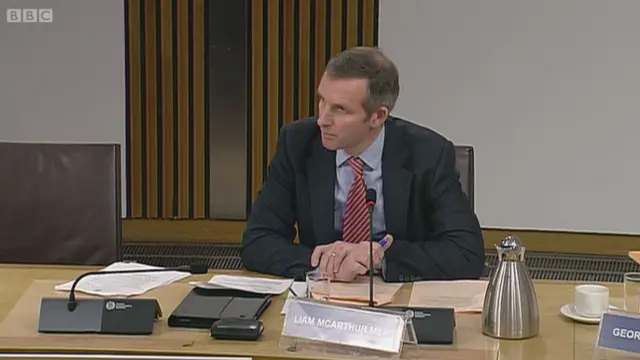
Ms Constance says the government does accept there are multiple gaps and they are linked.
She says closing the attainment gap should be the focus of the national improvement framework.
Ms Constance says the government is not measuring the attainment gap in terms of standardised testing.
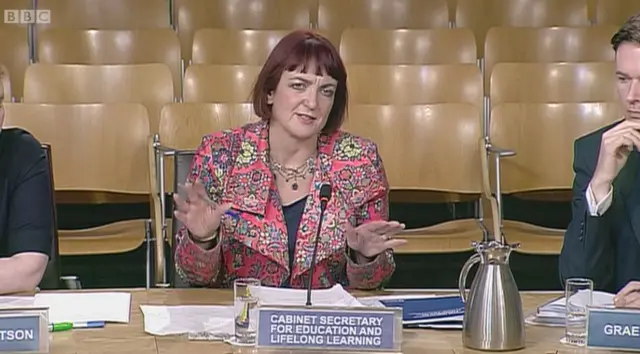
What will be published will be Curriculum for Excellence levels, says the education secretary.
She says the Scottish Index of Multiple Deprivation (SIMD) index will be used to measure the equality gap.
The Scottish Index of Multiple Deprivation identifies small area concentrations of multiple deprivation across all of Scotland in a consistent way.
More details of plans to introduce standardised testing in Scotland's primary schools were revealed in January.
Local authorities will be required to use new standardised assessments, in reading, writing and numeracy, in P1, P4, P7 and S3.
First Minister Nicola Sturgeon said the raw data would not be made public.
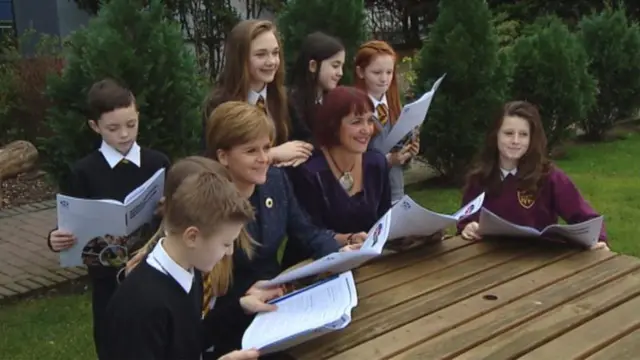 Image source, bbc
Image source, bbcFirst Minister Nicola Sturgeon and Education Secretary Angela Constance launched the framework in Glasgow
However, information would be published on the proportion of children reaching the expected standards in numeracy and literacy.
Some critics have raised concerns that the results could be used to draw up "league tables" for primary schools.
Teachers' unions, including the Educational Institute of Scotland, have been concerned about the possible unintended consequences of the assessments if the test results were used to produce unofficial league tables.
The tests are a central plank of the National Improvement Framework which the Scottish government claimed would help narrow the attainment gap between the least and most deprived children.
Conservative MSP Liz Smith asks for the evidence base behind the teacher pupil ratio.
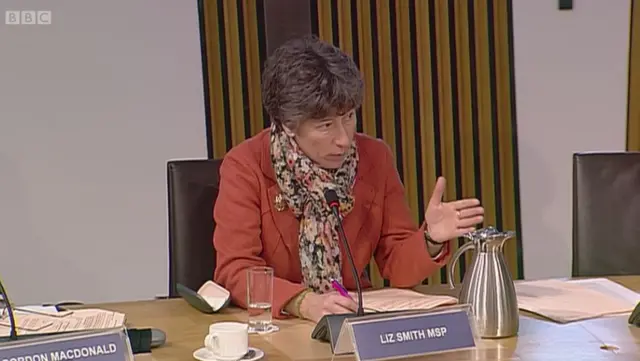
Ms Constance says the work of McKenzie in 2007 informs this.
The education secretary says the pupil teacher ratio must be protected nationally.
The education secretary says the government has reached an agreement with all councils on the pupil teacher ratio, which will limit the flexibility they have.
Mr McArthur says arbitrary fines on teacher census day is the last thing councils need.
He says: "This is a very kind of blunt instrument".
Lib Dem MSP Liam McArthur says the minister has conflated the quantity and quality of teachers, which he says is rather disingenuous.
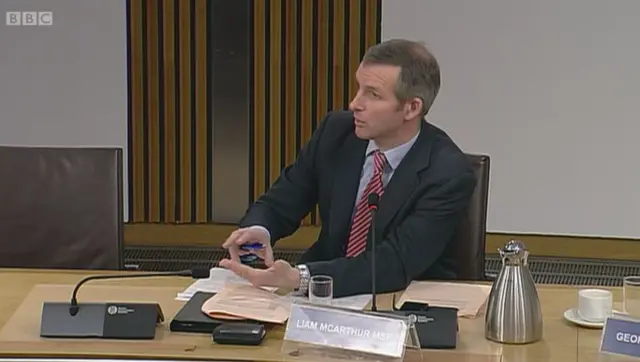
Mr McArhur says the lack of flexibility is a concern and accuses the government of coming to an arbitrary ratio.
Ms Constance says ultimately quantity and quality are related.
She fails to see how standing back and allowing teacher numbers to fall would help.
The OECD "problems and challenges";

The OECD review positives;
 Image source, Thinkstock
Image source, Thinkstock